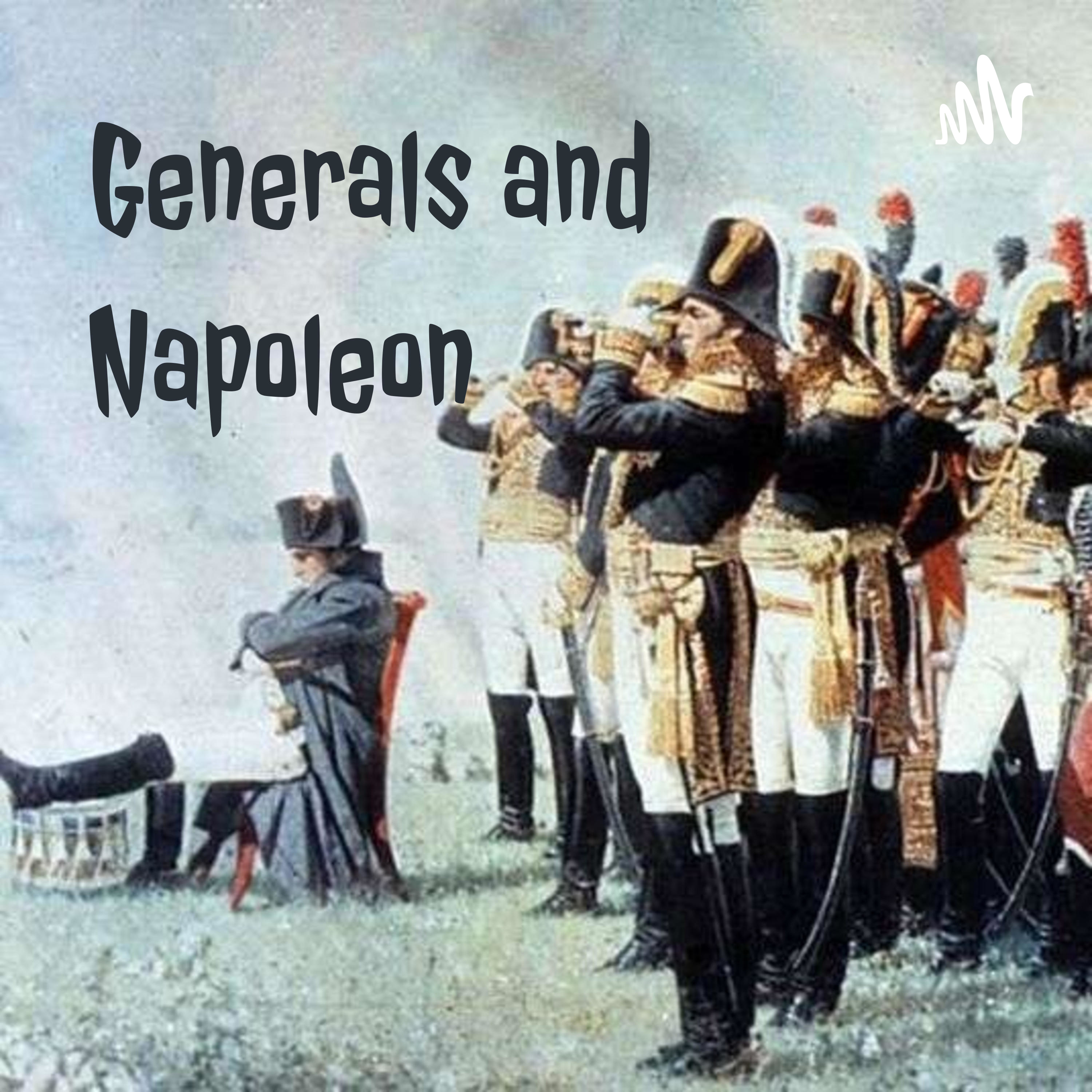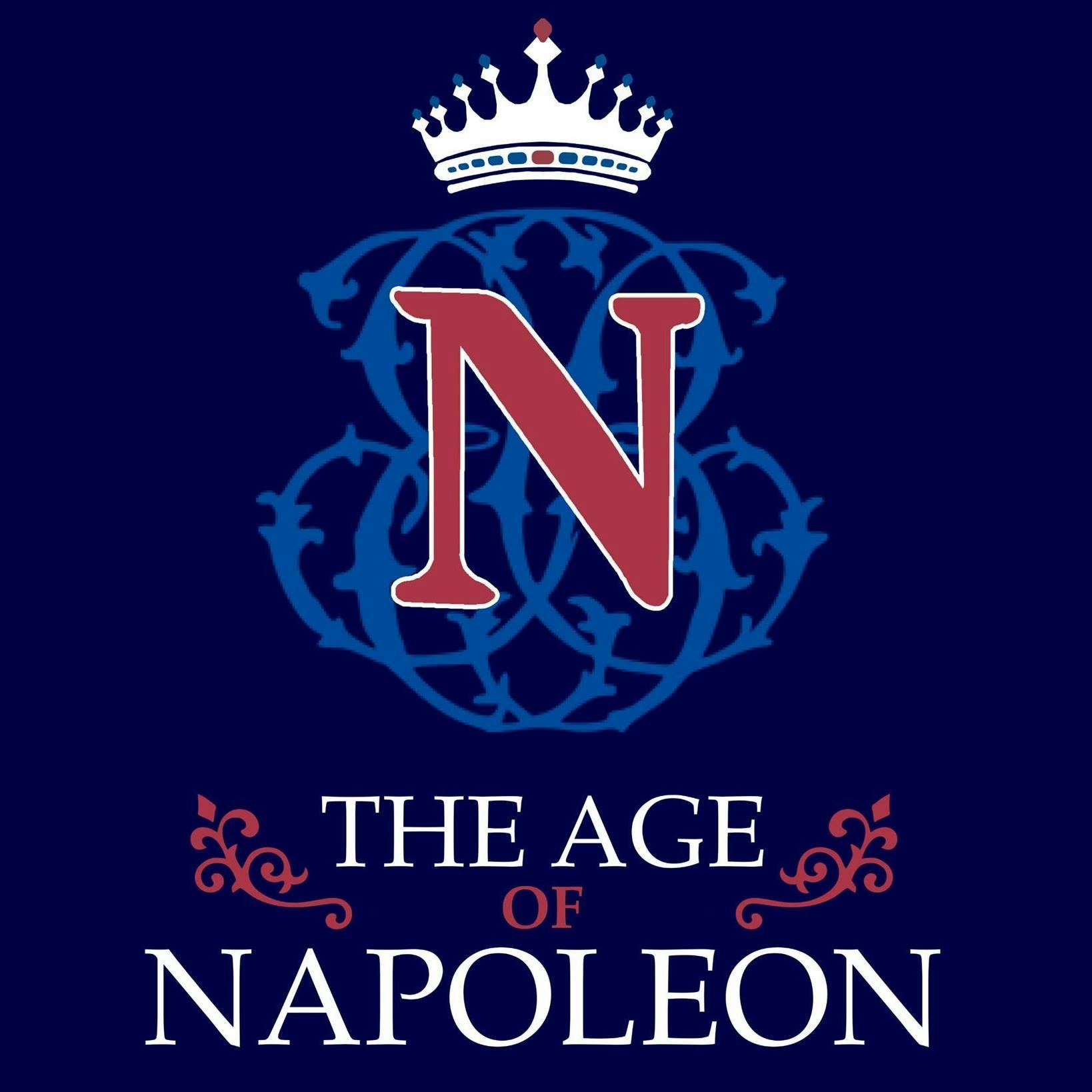
La Fayette, We Are Here!
La Fayette, We Are Here!
Jules Verne - France's Great Adventure
Verne didn't just write stories; he opened portals to new worlds and inspired generations to dream bigger and reach farther. Join us as we delve into the life and legacy of Jules Verne, the father of science fiction and a true visionary of his time.
Timecodes
Introduction
04:42 - Growing up in Nantes
11:06 - Young Parisian Playwright
19:05 - Success, at last
31:36 - Darker Times
41:47 - Conclusion
Links to relevant episodes:
- On the 1870-71 Franco-Prussian War: https://www.lafayettepodcast.com/1969630/10702428-the-franco-prussian-war-of-1870-rehearsal-for-the-world-wars
- On late 19th century colonization: https://www.lafayettepodcast.com/1969630/12999723-french-indochina-from-imperial-jewel-to-hell-on-earth
- On the Dreyfus Affair: https://www.lafayettepodcast.com/1969630/14076356-the-dreyfus-affair-france-s-shame
Music: Marche pour la cérémonie des Turcs, composed by Jean-Baptiste Lully, arranged and performed by Jérôme Arfouche.
Artwork: Jules Verne in 1892, photograph by Charles Herbert
Reach out, support the show and give me feedback!
In the heart of 19th-century Paris, excitement was in the air. The city's narrow, cobblestone streets were lined with quaint bookstores, their shelves filled with stories promising adventures beyond the ordinary. It was here, among the scent of freshly printed paper, that a young reader discovered a world that would change their life.
One crisp autumn afternoon, this young reader wandered into a small, dimly lit bookshop. The shopkeeper, greeted them with a nod. The reader's eyes roamed the shelves until they settled on a series of books bound in vibrant covers, with titles hinting at grand adventures: Twenty Thousand Leagues Under the Sea, Journey to the Center of the Earth, Around the World in Eighty Days.
Curiosity piqued, the reader picked up one of the volumes. The name on the cover read "Jules Verne." They had heard of this author, known for his limitless imagination, who could transport readers to the depths of the ocean, the heart of the earth, and the farthest reaches of the sky. As the reader turned the pages, they were captivated by Verne's vivid descriptions and the daring exploits of his characters. The stories were more than just tales; they were extraordinary journeys that ignited the imagination and stirred the soul.
That day, the reader's world expanded. Through Verne's words, they embarked on adventures they had never dreamed possible, discovering the wonders of science, the thrill of exploration, and the boundless potential of human ingenuity. Jules Verne didn't just write stories; he opened portals to new worlds and inspired generations to dream bigger and reach farther.
Join us as we delve into the life and legacy of Jules Verne, the father of science fiction and a true visionary of his time who not only captivated young readers but also shaped the course of literature and imagination.
Welcome, to La Fayette, We are here!, the French history podcast, by a Frenchman. I am your host, Emmanuel Dubois, and today, we are talking about Jules Verne, the famous French author who lived from 1828 to 1905. For those who know anything about me, you are aware that I am a big science-fiction fan. Besides history books, almost all the reading I do is science-fiction, or speculative fiction to use a broader term. My interest doesn't come from a fascination about spaceships, lasers or aliens. It rather stems from my passion and preoccupation for human nature, culture and possibilities. Speculative fiction is the perfect medium to ask deep questions pertaining to the myriad possibilities of the great human adventure. And although it didn't begin with him, this whole literary genre owes a lot to Monsieur Jules Verne and his stories.
Verne is one of the most influential authors who ever lived, from every country and genre. He is the most translated author in the world after Agatha Christie and is by far the most translated French author. Verne's vision, stories and characters still resonate with us today, whether as part of new fictional storylines, or as cultural beacons and references. Today we will explore Verne's origins and journey, all the more fascinating as he was not destined at all to become a novel writer. As we'll discover together, his more down-to-earth education and fascination for sciences will make him into the remarkable storyteller that we all know today. So, board your capsule, close the hatches, open your minds and get ready to plunge into the life of Jules Verne.
Growing up in Nantes
Jules Verne is born in Nantes, a city on the Loire river in Western France, on February 8th 1828. His father, Pierre Verne, is an avoué, a sort of lawyer. His mother, Sophie Allotte de La Fuÿe, comes from a family of ship builders and sailors. He's the firstborn of the family and will eventually have a brother, Paul, and three sisters: Anne, Mathilde and Marie. They are what we could call a small bourgeoisie family. Not extremely rich, but very comfortable. Sophie comes from a wealthy family, and Pierre is making good money too. Jules' father is very strict and sought a conservative and firm education for his sons. Jules is also raised with an omnipresent catholic faith. Pierre Verne wants to make lawyers of his boys, he wants to see them walk in his path. But as you'll see, Jules is everything but a path follower. He's a path setter! If not necessarily physically, then mentally, intellectually.
Jules and Paul are sent to the catholic College Saint-Stanislas in Nantes to receive that old-fashion education that their father craves. The two brothers are three years apart and will remain very close their whole lives. Paul will actually be an important figure in our story today. Jules is a very good student, he excels in languages, including Greek, and geography. When he's 16, he and his brother are sent away to the petit séminaire de Saint-Donatien, a sort of boarding school, in Bouguenais, about 15km from their residence.
Jules already shows signs of his independence. He runs away from home at 11, in defiance to his father. He actually booked a passage to India, as a sailor on a ship! He's caught by his father during his little escapade and is brought back home. Although he's a hard worker and enjoys schools, he doesn't care much for the narrow vision of the world offered by his father who only appreciates law and rigour. Jules has a broader appetite for life, one that will lead him to fall in love with another intellectual discipline: literature. If his father won't allow him to travel on the oceans, Jules will travel in his mind, sailing on words rather than seas.
When he finishes the lycée, sort of the French high school if you will, he is destined to study law and to inherit his father's practice. He is sent to Paris in 1847 for a couple reasons. The first, is to pursue his studies, the second is to keep him away from Caroline Tronson, who he's in love with, but who is also his cousin. She's to marry a man over 20 years her senior, as was sadly very common at the time in French families of this standing. Jules is very saddened and bitter about this. Nevertheless, he does finish his first year of study and everything seems to be according to plan.
However, Jules is a 19 year old boy living alone in Paris. Do you really expect him to go to class, go back to his room and lock his door until the next day when he's in one of the greatest and most vibrant cities on Earth? France is at the time ruled by king Louis-Philippe and is about to experience a revolution in 1848 that will bring about the Second French Republic. Although Jules is no revolutionary, he spends more time in the company of writers, artists and singers, full of democratic and republican ideas, than sitting on the university's benches to learn about law.
That's when he starts writing. He begins with poems, some that were destined to Caroline, and a play. His family doesn't approve of this and his father is brutally clear about this. After his first year, he returns to Nantes to help his father out at the family practice. He also meets another woman, Rose Herminie Arnault de La Grossetière and falls fall head over heels in love with her. He writes her poems but he's rejected by her family, who sees him as a student with ambiguous prospects in life. She marries another, a better party according to her family, and Jules is absolutely devastated and enraged. It will stay with him for a long time actually, and several of his stories will include subplots with young women being married away to older men against their will. Obviously, Jules was not a fan of this social behaviour and was already ahead of his time in some aspects of his life.
After this episode, Jules decides that he wants to broaden his horizons. The only way to achieve this is through theatre, by seeing and writing plays, by meeting authors and actors. He then moves back to Paris in late 1848, this time, for good. Before leaving, he writes to a friend quote: "[...]Je pars, puisqu'on n'a pas voulu de moi, mais les uns et les autres verront de quel bois était fait ce pauvre jeune homme qu'on appelle Jules Verne" or in English: "[…] I am leaving, since they didn't want me, but everyone will see what kind of person this poor young man named Jules Verne really was." End quote
Young Parisian Playwright
Jules is now 20 years old and alone in Paris. Actually not completely, as he shares an apartment with another young man from Nantes, Édouard Bonamy. His father hasn't cut him off completely, but he sends him a very small pension that barely covers his basic needs, infuriated by his son's attitude and desire to learn literature and theatre rather than law,. Jules is entering a fairly meagre period of his life, financially speaking.
He begins his literary adventure by writing operettas, encouraged in this by his friend the musician Marcel Hignard, who introduces him to Alexandre Dumas. Dumas likes the young Verne and decides to protect him. Having just published The Three Musketeers in 1844 and The Count of Monte-Cristo in 1846, Dumas is at the top of his popularity and a literary authority. He's also mocked by part of the French society, because of his Haitian origins and his ethnicity, having black grand-parents. I particularly like this exchange that Dumas had with someone who attacked his origins, and I apologize for the language. Dumas was asked quote: "By the way, dear Master, don't you must know everything about niggers?" To which he answered: "But most certainly. My father was a mulatto, my grandfather was a negro and my great-grandfather was an ape. You see, Sir: my family starts where yours ends." End quote. It's always good to see an racist being crushed that way, but I digress.
Supported by his friends, Verne is hired as secretary of the Théâtre-Lyrique in 1852. This ensures him a small revenue but, more importantly, it gives him a way to have some of his plays actually performed occasionally. Verne is also trying his hand at novellas and short stories. He'd met Pitre-Chevalier in 1851, a Breton writer and editor-in-chief of the Figaro newspaper. He publishes some of Verne's stories, including Un Voyage en Ballon or A Balloon Trip, an adventure that prefigures of bigger things to come.
Verne's work is met with timid reception, success is not ensured at all. At the same time, his father tries for the last time to convince Jules to become a lawyer and to be done with this literary nonsense. Verne actually registers at the Paris Bar but never starts to work as a lawyer, he makes that very clear to his father in a firm letter written in 1852. Jules sees things for their comical and dramatic qualities, and puts those into his plays, operettas and novellas. He also has a passion for geography and travels. He meets the explorer Jacques Arago, who has circumvented the globe in 1817. Verne is fascinated by his tales and the scale of all that there is to see and learn on our planet.
He starts to write fictitious travel tales, always marked by lots of humour. He perfects his craft, works enormously, re-writes entire chapters and seeks council from all his friends and relations. He doesn't know it yet, but his own journey to success will take him over a decade from this point. He's so engaged in his passion for storytelling that he tries to read everything that is available, despite his little financial means. He stops eating for three days to save some money to buy an omnibus of Shakespeare's plays for example. He also shares his only nice suit with a good friend, the one with the most urgent social need being the happy wearer of said suit. Not a fancy life for the young man!
From 1852 to 1856, Verne keeps writing plays that are performed at the Theatre Lyrique, but the death of Jules Seveste, the theatre's director, is a serious blow to Jules. Even though he stays there until 1855 as a secretary and is even offered the post of director, it is just not the same thing for him anymore. He now feels limited by it and wants to express himself differently. At 28, Jules is a bit at a loss. He's a playwright without much of a public, a writer without a real readership. He has told his family that he'd go his own way no matter what and has renounced a career that would have ensured his financial security and his social status.
In early 1856, he's asked by his friend Auguste Lelarge to be his best man at his wedding in the town of Amiens, about 140km north of Paris. Verne accepts and heads up to Amiens. Just before the ceremony, he meets a young woman, a 26 year-old widow named Honorine du Fraysne de Viane. She already has two daughters, Louise and Suzanne. Verne falls in love almost instantly. He writes as much to his mother but faces a dire situation, he doesn't have much to offer her in a world where social standing means a lot, if not everything. Luckily for him, Honorine's father, Ferdinand de Viane, is in finance and needs someone to work as a stockbroker for him. All that Jules needs to do is to buy his way into an office and he asks the only person who can help him financially: his father.
He writes letter after letter to him, explaining the situation, that he just needs a contribution from him to help him settle. He writes, quote: "I need a position, and one that can be offered even to those who don't accept men of letters; the first opportunity to marry, I will seize it; I am fed up with bachelor life, which is a burden to me... this may seem funny, but I need to be happy, nothing more, nothing less.", end quote. His father finally accepts and loans him the money. He marries Honorine in January 1857 and works in his new office. But far from being settled for life, Jules is only ensuring his bases to work on his only real passion: his literature. For within a few years, from the life of this quiet couple living in the Quartier du Temple in Paris will emerge the most fantastical adventures ever put to paper. In Jules' mind, balloons were being inflated, boats launched, canons built and great minds imagined. They would soon, flood the bookstores of France, of Europe and of the entire World.
Success, at last
This newly acquired stability allows Verne to do the one thing he couldn't do before: travelling. In 1859, he travels to England and Scotland, taking notes all the time. In 1861, he goes to Norway with his friend Alfred Hignard. He broadens his horizons dramatically both abroad and at home, though his traveling and extensive reading. Also, his son, Michel, is born in 1861 and represents a big change in Jules' life. Ironically, Michel and Jules will have the same difficulties as Jules had with his own father, Michel being rebellious by nature. That will be something of a sad pattern with Jules, as he will often apply to others the behaviour that he fought when applied to him, but I will circle back to that.
1861 is a turning year in Verne's life. This is when he meets Pierre-Jules Hetzel, an important publisher who had worked with Proudhon, Baudelaire, among others. Although Hetzel is a bit lukewarm at first and actually rejects a story by Verne, he's still very interested in what the thirty-three year old author has to offer. They begin their collaboration on a project called Un voyage en l'air, or A Trip in the Air. Hetzel is an excellent publisher and helps Verne to edit and perfect his work. He also pushes him to deepen his scientific research to make it both educative and accessible. In 1863, they publish Cinq Semaines en ballon, or Five Weeks in a Balloon. It's an instant and remarkable hit. It's also the first novel in his Extraordinary Voyages series.
Verne had worked for years on establishing a sort of template to tell his stories. A mix of exploration, adventure, but also of nitty-gritty details, of science and engineering. At a time where people rarely traveled more than a few kilometres from home and couldn't really learn about other activities than their own, the public instantly marvelled at Verne's enthralling story. And I am not only taking about the French public, the book is quickly translated in several languages and is also a success abroad.
Verne signs a contract with Hetzel for twenty years. He's to publish a novel every two years and to participate in his magazine, the Magazine of Education and Recreation where Verne will publish short stories or serialized novels. Verne gladly quits his job as a stockbroker and becomes a full-time writer. He's bursting with ideas and discusses many of them with Hetzel and his associates. Together, they perfect the concept of the "science novel", which contains the elements I've enumerated. It's not exactly an entirely new idea, but they will take it to the next level.
Verne lives during a period of enormous scientific and technological achievements. The daily lives of average citizens had been thoroughly transformed by the achievements of the last century. From medical advancements, to new building or agricultural methods, almost everything was improving. If you were to look at your average French person in 1665 and 1765, they would probably lead roughly the same life. If you do the same comparison with 1865, it's not even close. France as a country had metamorphosed and modernized at a rhythm never seen before. This seemingly unending progress was define by a French philosopher Auguste Comte as positivism. I'm blatantly summarizing now, but it basically means that history and sociology are moving forward and improving thanks to rationality and science, to the detriment of religion and mysticism.
Verne is Cleary an incarnation of that perspective. In his stories, men are able to accomplish unheard of feats. They can explore the skies, the deepness of the seas, the entrails of the Earth. They can solve impossible problems through reflexion and science, they can defeat prejudice and superstition. But they don't do it in a boring or linear way, they do it by traveling the globe and living tremendous adventures punctuated with comical moments. Verne's genius is his ability to merge together the serious, even tedious and apparently boring, with the frivolous and the funny, all in a coherent storyline.
With Verne, you will often meet either a group of savants or a professor with his funny assistant and together they will have a mission offered by extraordinary circumstances. Secondary characters will give life to these stories and keep them entertaining all along. Verne also introduces his readers to the vocabulary of his characters. Engineers will explain the mechanics of their creations, biologists will enumerate species, astronomers will talk about Lagrange points and planets' movements, etc. Readers will come out of Verne's tale enriched by both a fantastic story and a newly acquired knowledge.
From 1864 on, Verne publishes many, many works. He writes the serial Voyages and adventures of Captain Hatteras in Hetzel's magazine and then his second novel: Voyage to the Center of the Earth, another great success. If the heroes in his first novel were British, this time they are German. And his next novel, From the Earth to the Moon has an American casting. Verne likes to change the setting of his novels and to try and represent what these different countries have to offer, at least when it comes to science and technology. His stories are mostly set in his own time and take advance of the historical circumstances.
For example, in From the Earth to the Moon, the plot is quite funny. The end of the American Civil War has led to the best artillery men of America to find themselves without a mission, so they decide to make a gun to shoot a shell to the moon out of sheer boredom. Americans are depicted as brave, ingenious, but also bellicose and trigger happy. I'll leave it to you, dear listeners, to decide if this depiction is accurate. One thing where Verne was very close to reality is in his depiction of the trip from the Earth to the Moon itself. He predicted that it would take just a little over four days, 97 hours to be exact. Apollo 11 took 73 hours to reach the moon. Not bad, dear Jules!
Verne keeps working and pumping out great stories until in 1869-70 he publishes what I believe is his masterpiece: Vingt Mille Lieues sous les mers, or Twenty Thousand Leagues Under the Seas. In this incredible novel, the French professor Aronnax and his assistant Conseil are set to find an incredible creature who sinks or damages ships all over the globe. Together with the Canadian whale hunter Ned Land they find said creature at sea. It's actually a remarkable submarine who patrols the oceans. The vessel is named the Nautilus and is under the command of Captain Nemo.
You probably already heard the names Nautilus and Nemo. The ship is a character in itself, and Verne's depictions of its appearance and capabilities just transport you there. The dark and energetic Nemo is both fascinating and intriguing, while the good professor and his friends to their best to learn all they can while staying alive in often perilous conditions. The US Navy named its first nuclear submarine, launched in 1954 Uss Nautilus, in honour of Verne's creation. The fact that the American Navy named one of its most important vessels after a French work of fiction just exemplifies the long term effects of the author's work.
How many young men and women started their careers in sciences because of Jules Verne? How many authors were inspired by his trailblazing work? How many scientists, searchers, engineers or physicists worked harder to try and achieve some of the concepts found in Verne's work?
Verne also wrote stories that were entirely possible but relied on his characters' ingenuity and cleverness. The perfect example is Around the World in Eighty Days, published in 1873, where Phileas Fogg, a precise and unflappable English gentleman, bets that he can travel around the world in just eighty days. Accompanied by his loyal servant, Passepartout, Fogg embarks on a journey full of unexpected challenges and adventures, encountering diverse cultures and overcoming numerous obstacles to win the wager. A simple concept, but through Verne's literary qualities, it becomes a delight of storytelling.
Verne's work is met with tremendous success during over a decade. Despite this, he's snubbed by many fellow writers who consider his stories to be too frivolous and his target audience to be children. While it is true that many children, teenagers or young adults read his work, his reflexions go way beyond the scope of ordinary child literature. He is educative, most certainly, and he does take his reader to fantastical lands, qualities that made him popular with a younger audience, to this day. But his literary and philosophical qualities shouldn't be diminished. He doesn't try to make you marvel at his prose, he doesn't have Hugo or Dumas' style for example, nor Maupassant's ease, but he's very thorough, very clear, very well paced and never dull. That, plus the incredible ideas that Verne explored made him the author that he was and the perennial success that he is, to this day, around the globe.
Sadly for Verne, the real world was about to collide with his imagination. In 1870-71, France is utterly defeated in a swift but very brutal war with Prussia. Paris is occupied, then a revolt called the Commune is brutally crushed by French troops under the uncaring eye of German soldiers. Verne witnesses all of this and is deeply affected by it. After that, his work won't every have the same lightness or enthusiasm, despite some moments of hope.
Darker Times
In 1871, Verne moved with his family at Amiens, advised by his wife that he should distantiate himself from the tumult of Parisian life, especially after the atrocities that they witnessed there. Verne also sees the rise of nineteenth century's wild capitalism, where more and more workers are put to work in absolutely horrible conditions to enrich their bosses. He also watches a new wave of colonialism in Africa and Asia, something that Verne condemned, along with slavery. Although, it has to be said, Verne often depicted Africans and Asians as, quote and quote, "savages" with limited intellectual capabilities. He also propagated national prejudices in his novels. For example, he called Spaniards and Italians "retarded" and "superstitious", obviously putting the French among the pantheon of civilized and advanced peoples. To be totally fair, these prejudices where very common in France at the time, but it doesn't completely excuse Verne's attitude.
I will also add that Verne nuanced some of it, by making Nemo an Indian Hindu for example, or by criticizing European's tendency to use force to get their way. Nevertheless, he remains mostly entrenched in his century's perspective on other societies, despite his opened mind on all the rest.
During the rest of the 1870's and the early 1880's, Verne keeps publishing novels and stories and still enjoys a considerable success. He's also a clever businessman and makes the most of his earnings. He lives a very comfortable life and travels a lot, often accompanied by his brother Paul. Although he enjoys a very good relation with his brother, it's not the case with his son, Michel. Citing a rebellious behaviour, Jules has his own son put into a disciplinary house, a sort of prison for young men, in 1876. Michel is only 15 at the time. In 1879, Jules throws him out of the family home and allows him a pension to live on. Michel and his father will live very separated lives from then on, with Jules intervening sometimes to help his son with debts or a difficult divorce. Jules will even disinherit his son in his will, leaving all his money to his wife and stepdaughters. It's quite remarkable how a man who saw so much, read so much and wrote about all the capabilities and qualities of human beings couldn't find it in his heart to help his own son and be close to him.
Verne is also an adept sailor. He owns a boat named the Saint-Michel and enjoys sailing alone or with his family and friends. He keeps setting his stories in foreign lands, like the novel Michel Strogoff, published in 1876, in which we follow a courier of Tsar Alexander II in Siberia, or The Jangada, set in South America, published in 1881. He keeps imagining the advancements of technologies in novels such as Robur the Conqueror, published in 1886 where the heroes are taken aboard a floating machine, sort of an hybrid between a flying boat and a zeppelin. The Japanese anime movie A Castle in the Sky is directly inspired by Verne's ideas in this novel.
Despite this everlasting creativity, Verne’s view of the world definitely darkens in the 1880’s and 1890’s. He sees the growing tensions amongst nations, notably France and Great Britain and is fearful of where it’ll lead Europe and the world down the road. His stories talk about warfare and even include mad scientists, including one who invents a device capable of destroying life on Earth. Without knowing it, Verne had predicted the fears of the Cold War, decades before Einstein even wrote down his theories that will make harnessing nuclear power possible. If Verne was capable of imagining the most remarkable human achievements, like exploring the depth of the oceans and travelling to the moon, he also envisioned the worst humanity could offer.
In 1885 and 1886, Verne faces some of said worst. He struggles financially, in part because of his son's debts, and has to sell his boat at a loss. Verne is now 57 and his mood is growing darker, as I have just said. It is when something unthinkable happens to him, something not even a writer such as he could have imagined as a remarkable plot twist.
On March 6th, 1886, after returning from a Club, he finds his nephew Gaston armed with a revolver. Gaston shoots him in the leg. He's later arrested and suspected of insanity. His father, Paul Verne, claims that Gaston shot Jules Verne to draw attention to him and help him join the Académie française, which Verne had hoped to join at some point. Gaston, convicted of insanity, will remain in an institution until his death in 1938. The doctors will never be able to remove the bullet from Verne's leg, and he will limp for the rest of his life.
In early 1887, Verne's mother dies. His father died in 1871 but, as you can imagine, it didn't affect Verne that much. Because of his wound, Verne is unable to attend her funeral. With advancing age and his handicap, he will stay in his house in Amiens more and more. He does try do diversify himself, being elected as a municipal representative in 1889 and becoming a member of the Alliance française in 1890. For those who don't know, the Alliance française is an organization whose goal is to promote the French language and French culture both outside and inside France. It is still in activity all over the world, with many branches in the USA.
Verne also becomes more and more conservative. He gets closer to monarchist circles in the 1890's and is very nationalistic. When the Dreyfus affair begins in 1894, he first sides with the military and the State against Dreyfus, seeing this as the only right patriotic posture. His son, Michel, sides with Dreyfus from day one and will work with others to convince his father of the Jewish captain's innocence. Verne will eventually change his mind and support Dreyfus, years later. As I have stated, Verne is indeed, like so many others at the time, full of prejudice against Jews and other people. Although not a proponent of colonialism, he considers the people who are being conquered to be savages, not as evolved as the French or other Europeans. Definitely a common view at the time, but a sad one nonetheless.
His views on women are more ambivalent, especially for the time. Although most of his heroes are men, his novels often have their share of women and the are often very knowledgeable and calm, where the men tend to be hot heads. They also often represent what Verne would believe to be a good moral sense, advocating against slavery, violence, etc. Although nobody can rightly claim Verne to be a feminist, or even close to one, I think it's fair to say that he gave women a significant part in his stories and sought to represent them fairly according to the standards of the time, which is already better than a lot of contemporary authors.
But back to Verne's life. His sense of joy slowly but surely left him in the last couple of decades of his life. In 1894, he writes to his brother Paul, quote: "All cheerfulness has become unbearable to me, my character is deeply altered, and I have received blows from which I will never recover." The last blow comes in 1897 when his brother dies of heart failure. Although Paul had been sick for years and Jules knew this was coming, he is totally devastated and never truly recovers.
From then on, he starts to diminish his implications in the different societies he's a part of, like the French Society of Geography. At the turn of the century, he begins to have trouble writing and starts to go blind. He dies in his house of Amiens on March 24, 1905, aged 77, survived by his wife and their children. The great creator had left Earth for a voyage that he would never be able to write down.
Conclusion
What to make of Jules Verne's life story and career. As I have stated in my introduction, he is still immensely popular. He has created characters like Captain Nemo, Phileas Fogg, Michel Ardan or others who are part of our culture. His stories, his incredible stories have shown us what human ingenuity could hope to achieve or to touch in the coming decades or centuries. He also has to be recognized as one of the greatest science communicator of the time. A sort of Neil deGrasse Tyson of the nineteenth century.
As a very hardworking writer, he did his best to represent the current state of a given science in his novels. The research he made for Twenty Thousand Leagues under the Seas is nothing short of amazing, and this is just an example. Most people of the time had no idea whatsoever as to what marine life was, or the implications of diving with a submarine. Verne managed to explain this to them while offering to his readers a compelling, enthralling and even funny story. Not many authors can claim to have achieved that, especially on more than one occasion.
He had his troubles, as you have noticed. He seemed to be a better man when writing than when living his own life, talking about open-mindness and rationality while being a rigid and hard man with his loved ones, especially his own son. He also suffered from many prejudices of the time. Although he is not totally to blame for that, it must be underlined, as other intellectuals have managed to extricate themselves from said prejudices, Émile Zola being the obvious example.
But Verne's legacy remains. He did what many authors have tried and failed to do: he opened our eyes to different things. He showed us the world, in all its glory and power. He showed us the stars, with all their mysteries and promises. But more than that, he showed us that we can conquer the most difficult frontier of all. The frontier that keeps slowing us down, that keeps pulling us down and makes us believe we can't go any further or achieve anything more. The frontier of our own minds. Verne shattered it with his extraordinary voyages and paved the way for many authors, scientists, engineers, thinkers and many others to keep pushing and keep discovering. For that, we can only be grateful and say to Monsieur Jules Verne, merci !
Thank you for listening, au revoir.























